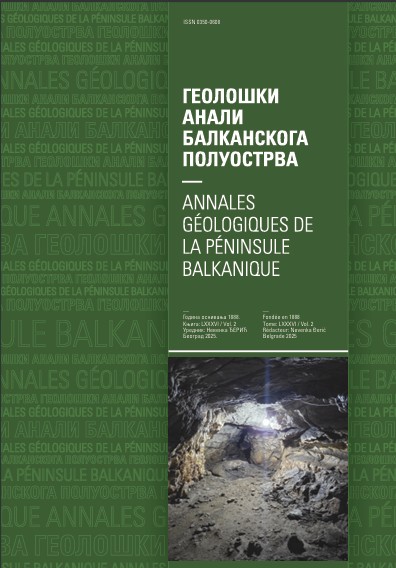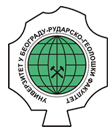Natural radioactivity of groundwater in Serbia
Abstract
Activity concentrations of radionuclides 40K, 228Ra, 226Ra, 238U and Th232 and gross alpha and beta activities were analyzed in more than 100 samples of groundwater in Serbia. The highest gross alpha activity was recorded at 1.33 Bq/L (average 0.12 Bq/L), while the highest beta activity was 5.43 Bq/L (average 0.68 Bq/L). The potassium isotope 40K exhibited the highest active concentration (2.6 Bq/L) and was the largest contributor to the gross natural beta activity. Among the analyzed samples, 28 were found to have elevated beta activity concentrations, of which five samples also measured elevated alpha activity. All the groundwater samples that exhibited elevated radioactivity were of the HCO3-Na type and were genetically associated with granitic rocks. Their TDS levels and CO2 gas concentrations were also elevated.
Copyright (c) 2022 Geološki anali Balkanskoga poluostrva

This work is licensed under a Creative Commons Attribution 4.0 International License.










